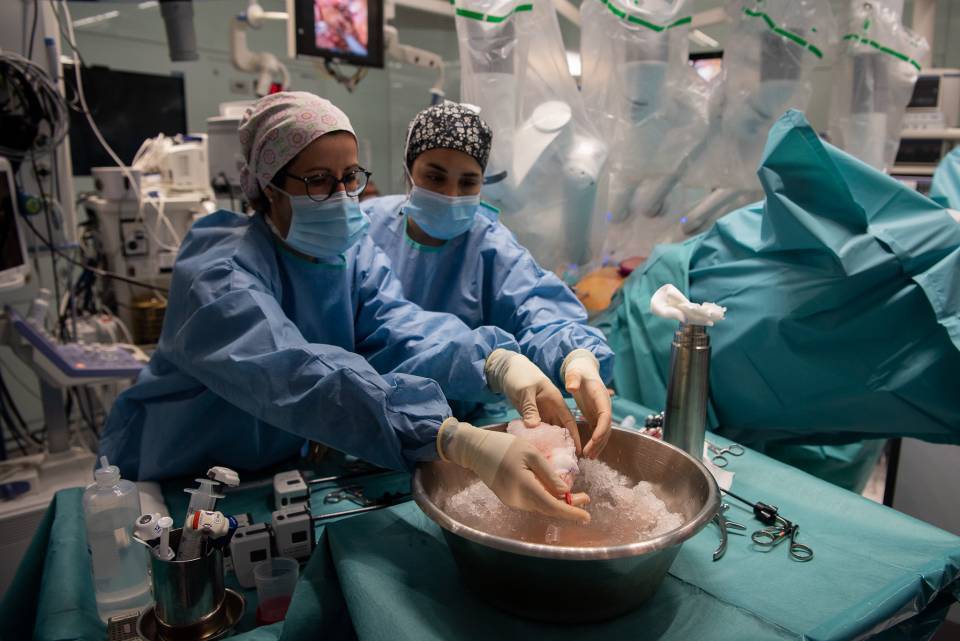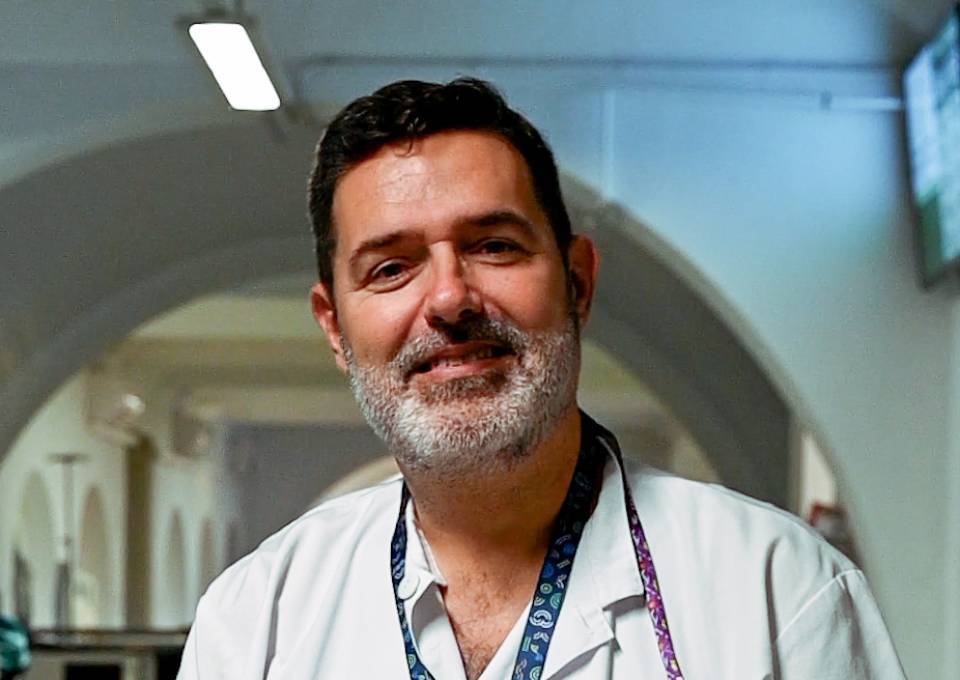Organization - Institute of Digestive and Metabolic Diseases
The Clinical Institute of Digestive and Metabolic Diseases (ICMDM) is made up of 4 services that act in a coordinated manner. It also leads 3 Units that deal with transversal care processes, in which several Institutes of the Hospital Clínic participate.
The ICMDM has five hospitalization rooms with 104 beds, an Intensive Care Unit with 14 beds, a day hospital with 10 points of patient care and the Outpatient Clinic. Diagnostic tests and therapeutic procedures are performed in the endoscopy and digestive functionalism oganizations and in the liver hemodynamics organization.
The four Services that make up the ICMDM are the following:
The three Care Process Units led by the ICMDM focus on the following diseases:
Nearly 6,000 people enter each year to receive medical or surgical treatment for a digestive or metabolic disease. At the same time, each year there are 56,000 visits to outpatient clinics and 13,000 visits to the basic healthcare areas of Barcelona-Esquerra. ICMDM professionals also carry out 7,000 visits through the Day Hospital, which allows diagnostic procedures or treatments to be carried out without the need for admission. About 15,000 examinations are performed annually in the digestive endoscopy organization and about 500 more procedures in that of the liver hemodynamics.
The Institute works to incorporate less invasive diagnostic procedures and disease screening programs, and to enhance ambulatory care. These elements of healthcare innovation must allow excellent care to continue to be offered in a sustainable way in the future. The quality of the service offered has been accredited by external assessment agencies.
Some of the main healthcare milestones attained in recent years, as the result of the collaboration between the ICMDM services, are:
-
Leading national liver transplant programme thanks to the joint work of the Hepatology Department and the General and Digestive Surgery Department, among others.
-
Comprehensive approach to patients with colorectal cancer and patients with inflammatory bowel disease, in which the General and Digestive Surgery and Gastroenterology Departments have played a key role.
-
Development of surgical treatment programmes for obesity by the General and Digestive Surgery and Endocrinology and Nutrition Departments.
-
The joint work between the Hepatic Oncology Unit and the General and Digestive Surgery Department has made it possible for the Hospital Clínic de Barcelona to become an international leader in the treatment of primary liver tumours.
We also promote the role of Advanced Practice Nursing (APN), which has significantly improved care for people with digestive and metabolic diseases.


